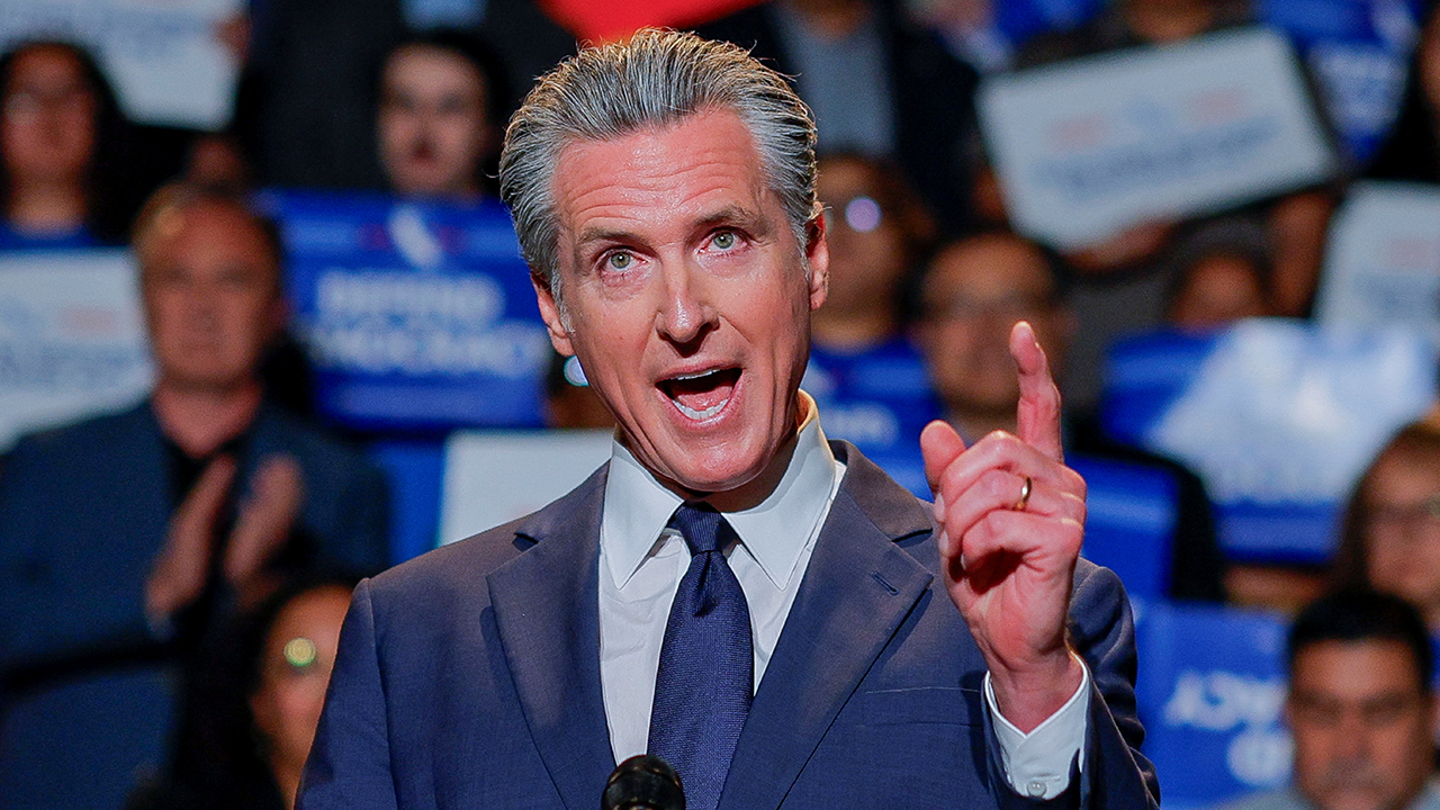
House panel to make Epstein files public after redactions to protect victim identities
Entities mentioned:
- House Committee on Oversight and Government Reform: Justice, Transparency, Duty
- Justice Department: Security, Control, Obligation
- Jeffrey Epstein: Power, Control, Greed
- Democrats on the committee: Righteousness, Moral outrage, Transparency
- Rep. Robert Garcia: Moral outrage, Transparency, Justice
- Speaker Mike Johnson: Control, Wariness, Obligation
- Virginia Foxx: Control, Duty, Wariness
Article Assessment:
Credibility Score: 75/100
Bias Rating: 55/100 (Center)
Sentiment Score: 35/100
Authoritarianism Risk: 25/100 (Generally Democratic)
Bias Analysis:
The article presents multiple viewpoints, including both Democratic and Republican perspectives, indicating an attempt at balance. However, slightly more space is given to Democratic critiques, which may suggest a slight center-left lean.
Key metric: Government Transparency Index
As a social scientist, I analyze that this article highlights a complex interplay between government transparency, victim protection, and political maneuvering. The House Oversight Committee's intention to release Epstein-related files, while balancing the need to protect victims' identities, demonstrates a tension between public interest and individual privacy. The disagreement between Democrats and Republicans over the pace and extent of disclosure reveals underlying political motivations and differing interpretations of transparency obligations. This situation impacts the Government Transparency Index by showcasing the challenges in releasing sensitive information, the role of partisan politics in transparency efforts, and the delicate balance between public right to know and protection of vulnerable individuals. The gradual release approach and the potential for a forced vote in September indicate ongoing struggles in achieving full transparency, which could lead to a decline or stagnation in the transparency index depending on the ultimate outcome and public perception of the process.

Newsom-style redistricting efforts critiqued by California Democrats as recently as July, statements show
Entities mentioned:
- Gov. Gavin Newsom: Power, Control, Ambition
- California Democrats: Power, Control, Self-preservation
- California Republicans: Justice, Righteousness, Self-preservation
- Citizens' Redistricting Commission: Duty, Fairness, Transparency
- Steve Hilton: Justice, Competitive spirit, Ambition
Article Assessment:
Credibility Score: 75/100
Bias Rating: 65/100 (Lean Right)
Sentiment Score: 35/100
Authoritarianism Risk: 55/100 (Mixed/Neutral)
Bias Analysis:
The article leans slightly right, evidenced by its focus on Republican critiques and extensive quoting of Democratic inconsistencies. While it presents factual information, the framing appears to favor the Republican perspective on the issue.
Key metric: Electoral Integrity Index
As a social scientist, I analyze that this article highlights a significant shift in California Democrats' stance on redistricting, potentially impacting the state's Electoral Integrity Index. The proposed change from an independent commission to politician-led redistricting could be seen as a move to consolidate power, contradicting previous statements supporting independent commissions. This shift raises concerns about the fairness and transparency of the electoral process, potentially eroding public trust in democratic institutions. The Republicans' pushback and the citing of Democrats' past statements supporting independent commissions add a layer of political conflict and accountability to the issue. The involvement of high-profile figures like Gov. Newsom and the potential for legal challenges further underscore the significance of this development for California's electoral system and its broader implications for democratic processes.

Trump DOJ handing Epstein documents to House Oversight Committee on Friday as subpoena deadline looms
Entities mentioned:
- Trump administration: Transparency, Obligation, Self-preservation
- House Oversight Committee: Justice, Duty, Influence
- James Comer: Determination, Professional pride, Righteousness
- Department of Justice: Duty, Obligation, Professional pride
- Jeffrey Epstein: Power, Greed, Control
- Ghislaine Maxwell: Self-preservation, Loyalty, Fear
- Bill and Hillary Clinton: Self-preservation, Legacy, Influence
- Bill Barr: Duty, Professional pride, Self-preservation
- Pam Bondi: Duty, Professional pride, Justice
Article Assessment:
Credibility Score: 75/100
Bias Rating: 55/100 (Center)
Sentiment Score: 45/100
Authoritarianism Risk: 25/100 (Generally Democratic)
Bias Analysis:
The article presents information from multiple perspectives, including both Republican and Democratic figures. While it gives more space to Republican Rep. Comer's statements, it also includes context about the Trump administration's actions, suggesting a relatively balanced approach.
Key metric: Government Transparency and Accountability
As a social scientist, I analyze that this article highlights a significant development in the ongoing investigation of Jeffrey Epstein's case, potentially impacting government transparency and accountability. The Trump administration's willingness to hand over documents to the House Oversight Committee suggests a move towards greater transparency in a high-profile case. This action could influence public trust in government institutions and their ability to handle sensitive investigations. The bipartisan nature of the investigation, involving both current and former administration officials, as well as prominent political figures, underscores the complexity and far-reaching implications of the Epstein case. The careful handling of sensitive information, including victim protection and redaction of certain materials, demonstrates a balance between transparency and privacy concerns. This process may set precedents for how similar high-profile cases are handled in the future, potentially strengthening oversight mechanisms and inter-branch cooperation.

Comer, Crockett clash over Barr’s Epstein testimony as ex-Trump AG ends four-hour House grilling
Entities mentioned:
- Bill Barr: Duty, Professional pride, Self-preservation
- Jasmine Crockett: Righteousness, Moral outrage, Justice
- Suhas Subramanyam: Righteousness, Justice, Suspicion
- James Comer: Duty, Transparency, Justice
- Donald Trump: Self-preservation, Power, Control
- Jeffrey Epstein: Power, Control, Greed
Article Assessment:
Credibility Score: 75/100
Bias Rating: 55/100 (Center)
Sentiment Score: 40/100
Authoritarianism Risk: 35/100 (Generally Democratic)
Bias Analysis:
The article presents viewpoints from both Democratic and Republican representatives, attempting to balance perspectives. However, there's slightly more detail and space given to Republican viewpoints, particularly Comer's responses to Democratic criticisms.
Key metric: Government Transparency and Accountability
As a social scientist, I analyze that this article highlights the ongoing partisan divide in Congress, even when investigating a bipartisan issue like the Epstein case. The conflicting interpretations of Barr's testimony by Democrats and Republicans demonstrate how political motivations can influence the perception and presentation of information. This impacts government transparency and accountability by potentially obscuring the truth behind partisan rhetoric. The investigation's effectiveness may be compromised by political posturing, affecting public trust in governmental processes. The article also underscores the challenges in conducting impartial investigations when high-profile political figures are involved, potentially influencing the depth and direction of the inquiry.

The number of ICE flights is skyrocketing — but the planes are harder than ever to track
Entities mentioned:
- Immigration and Customs Enforcement (ICE): Control, Duty, Security
- Trump administration: Control, Security, Power
- Witness at the Border: Justice, Transparency, Moral outrage
- ACLU National Prison Project: Justice, Transparency, Freedom
- La Resistencia: Justice, Transparency, Moral outrage
- CSI Aviation: Greed, Professional pride, Loyalty
- Allen Weh (CSI Aviation CEO): Loyalty, Power, Influence
Article Assessment:
Credibility Score: 75/100
Bias Rating: 40/100 (Lean Left)
Sentiment Score: 30/100
Authoritarianism Risk: 65/100 (Authoritarian Tendencies)
Bias Analysis:
The article leans slightly left, focusing on transparency concerns and the impact on detainees and their families. While it presents factual information, the framing emphasizes potential negative consequences of the increased deportation efforts.
Key metric: Immigration Enforcement Effectiveness
As a social scientist, I analyze that this article highlights a significant increase in ICE deportation and detainee transfer flights under the Trump administration, indicating a more aggressive approach to immigration enforcement. The efforts to obscure flight tracking information raise concerns about transparency and accountability in the deportation process. The involvement of private contractors and their political affiliations suggests a potential conflict of interest. This intensified deportation strategy likely impacts the overall effectiveness of immigration enforcement, but may also lead to human rights concerns and reduced public trust in the system. The difficulty in tracking these flights affects families of detainees and limits public oversight, potentially allowing for unchecked practices in the detention and deportation process.

Cookie policy
Entities mentioned:
- Guardian News & Media Limited: Professional pride, Transparency, Security
- Ipsos Iris: Data collection, Professional pride
- Microsoft: Advertising, Data collection
- Google: Advertising, Data collection
- Criteo: Advertising, Data collection
- Teads: Advertising, Data collection
- Ozone Project: Advertising, Data collection
Article Assessment:
Credibility Score: 85/100
Bias Rating: 50/100 (Center)
Sentiment Score: 55/100
Authoritarianism Risk: 20/100 (Strongly Democratic)
Bias Analysis:
The article presents a neutral, informative tone focused on explaining technical details and user options. It does not appear to favor any particular political or ideological stance, maintaining a balanced approach to describing cookie usage and privacy controls.
Key metric: Digital Privacy and Data Protection
As a social scientist, I analyze that this comprehensive cookie policy reflects the growing importance of digital privacy and data protection in online media. The Guardian's detailed explanation of various cookie types, their purposes, and user control options demonstrates a commitment to transparency and user empowerment. This policy likely impacts user trust and regulatory compliance, potentially influencing reader engagement and advertising effectiveness. The inclusion of region-specific information (e.g., for California, US, and Australian residents) indicates an awareness of evolving global privacy regulations. The policy's regular updates suggest an ongoing effort to adapt to changing technologies and legal requirements in the digital advertising ecosystem.
- Read more about Cookie policy
- Log in to post comments

Privacy policy
Entities mentioned:
- Anthropic: Professional pride, Duty, Transparency
- Users: Security, Privacy, Self-preservation
Article Assessment:
Credibility Score: 50/100
Bias Rating: 50/100 (Center)
Sentiment Score: 50/100
Authoritarianism Risk: 20/100 (Strongly Democratic)
Bias Analysis:
The minimal content provides little basis for assessing bias. The neutral framing of privacy as important avoids taking a strong ideological stance, placing it in the center of the spectrum.
Key metric: Consumer Privacy Protection
As a social scientist, I analyze that this article appears to be a placeholder or header for a privacy policy rather than a full article. The lack of substantive content limits meaningful analysis, but the emphasis on privacy and data protection suggests a focus on user rights and responsible data handling practices. This aligns with growing concerns about digital privacy and data security in the tech industry and society at large. The framing presents privacy as something that 'matters', implying its importance to both the company and users.
- Read more about Privacy policy
- Log in to post comments

Complaints & corrections
Entities mentioned:
- The Guardian: Professional pride, Transparency, Accountability
- Readers: Justice, Curiosity, Righteousness
Article Assessment:
Credibility Score: 70/100
Bias Rating: 50/100 (Center)
Sentiment Score: 55/100
Authoritarianism Risk: 20/100 (Strongly Democratic)
Bias Analysis:
The article's brevity provides little context for bias assessment. The neutral term 'Open door' suggests a centrist approach to reader engagement, neither leaning left nor right.
Key metric: Media Trust and Accountability
As a social scientist, I analyze that this article, though brief, implies The Guardian's commitment to addressing reader complaints and corrections. This practice positively impacts media trust and accountability by demonstrating openness to feedback and willingness to correct errors. Such transparency can enhance public trust in journalism and promote media literacy.
- Read more about Complaints & corrections
- Log in to post comments

Vance calls out Democrats over Epstein files, reignites push for transparency
Entities mentioned:
- JD Vance: Loyalty, Righteousness, Competitive spirit
- Donald Trump: Transparency, Self-preservation, Power
- Democrats: Political opportunism, Control, Self-preservation
- Joe Biden: Self-preservation, Power, Control
- Jeffrey Epstein: Power, Control, Greed
- Justice Department: Duty, Transparency, Justice
- Pam Bondi: Duty, Justice, Professional pride
- Kash Patel: Duty, Professional pride, Loyalty
- House Oversight Committee: Justice, Transparency, Duty
Article Assessment:
Credibility Score: 65/100
Bias Rating: 65/100 (Lean Right)
Sentiment Score: 35/100
Authoritarianism Risk: 40/100 (Generally Democratic)
Bias Analysis:
The article leans right, primarily due to the prominence given to Vance's accusations against Democrats without equal space for rebuttal. While it includes some balancing information, the framing tends to favor the Trump administration's perspective.
Key metric: Government Transparency Index
As a social scientist, I analyze that this article highlights a complex political struggle over transparency and accountability in the Epstein case. The push for releasing documents is framed as a bipartisan issue, but with clear political motivations from both sides. The Trump administration, through Vance, is positioning itself as pro-transparency while accusing Democrats of inaction and possible connections to Epstein. This narrative serves to deflect criticism and potentially pre-empt damaging revelations. The Justice Department's moves towards releasing some information, along with the House Oversight Committee's subpoenas, indicate increasing pressure for disclosure. However, the conflicting accounts of White House meetings and the careful management of information release suggest ongoing tensions between transparency and potential political fallout. This situation may lead to incremental increases in government transparency, but also risks further polarization and erosion of public trust in institutions depending on how the information is ultimately handled and presented.

Federal judge rejects Trump DOJ’s bid to unseal grand jury materials in Ghislaine Maxwell case
Entities mentioned:
- Judge Paul Engelmayer: Justice, Duty, Professional pride
- Trump administration: Control, Influence, Self-preservation
- Department of Justice: Transparency, Duty, Influence
- Ghislaine Maxwell: Self-preservation, Control, Greed
- Jeffrey Epstein: Power, Control, Greed
- Victims: Justice, Self-respect, Security
- Attorney General Pam Bondi: Duty, Loyalty, Influence
- Judge Richard Berman: Justice, Duty, Professional pride
Article Assessment:
Credibility Score: 75/100
Bias Rating: 45/100 (Center)
Sentiment Score: 35/100
Authoritarianism Risk: 25/100 (Generally Democratic)
Bias Analysis:
The article presents a balanced view of the situation, quoting extensively from the judge's ruling. While it mentions the Trump administration's involvement, it doesn't appear to take a partisan stance.
Key metric: Public Trust in Government Institutions
As a social scientist, I analyze that this article highlights a significant tension between the judiciary and the executive branch, specifically the Department of Justice under the Trump administration. The judge's scathing rejection of the DOJ's request to unseal grand jury materials in the Maxwell case reveals a deep skepticism of the government's motives. This conflict could potentially erode public trust in government institutions, particularly the DOJ. The judge's emphasis on the lack of new information in the requested materials and the suggestion that the government's motion might be aimed at 'diversion' rather than transparency raises questions about the administration's true intentions. Furthermore, the mention of victims being used for 'political warfare' underscores the complex interplay between justice, politics, and media attention in high-profile cases. This incident may contribute to a growing perception of government institutions being used for political purposes rather than serving justice, potentially leading to decreased public confidence in the justice system and federal agencies.